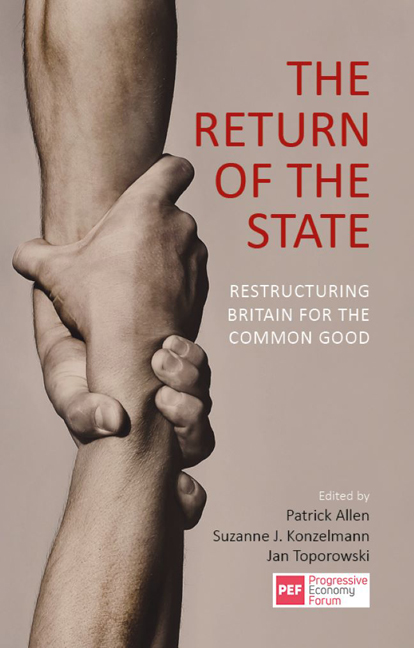5 - Affordable housing and a stronger economy
Published online by Cambridge University Press: 22 December 2023
Summary
The UK housing market is broken. The accepted affordability ratio for house price to incomes is around 4:1. In most major cities in the United Kingdom the ratio is double this, and in London, where the most jobs continue to be created, it is currently 14:1. A recent survey by Santander found that 70 per cent of 18 to 34-year-olds now believe that homeownership is over for their generation.
The first Covid-19 lockdown brought into stark view the plight of those unable to buy a home in a country with some of the weakest regulations protecting renters in the Western world. In cities such as London, renters pay over half their income to landlords. As incomes collapsed due to the lockdown, many have fallen behind with their rent (an estimate by Shelter put the number at 230,000 in England alone). The fear of eviction and homelessness has been ever present over the course of the pandemic, with the government having to repeatedly extend its ban on evictions at the last minute every few months.
Prospective home-buyers may have hoped that the virus-induced recession would finally lead to a sustained fall in house prices. There were a few months of gradually falling prices. But then, in July 2020, the government intervened, offering a stamp duty holiday on all properties under L500,000. Coupled with increasing demand for larger properties as people choose to work more from home because of the virus, the result has been the fastest rise in house prices in 16 years. The average price of a home – L240,000 – is now at its highest level ever.
The current government – like so many governments before it – is convinced that the housing affordability crisis is fundamentally a market failure on the supply side. The recent White Paper “Planning for the future” (see MHCLG [Ministry of Housing, Communities & Local Government] 2020) is a case in point. It proposes to overhaul an “outdated” planning system and “cut red tape” by largely removing the role of local authorities in approving planning applications and replacing it with a zoning system. The hope is that, with less regulatory oversight, the market will be set free to build more homes.
- Type
- Chapter
- Information
- The Return of the StateRestructuring Britain for the Common Good, pp. 61 - 70Publisher: Agenda PublishingPrint publication year: 2021

